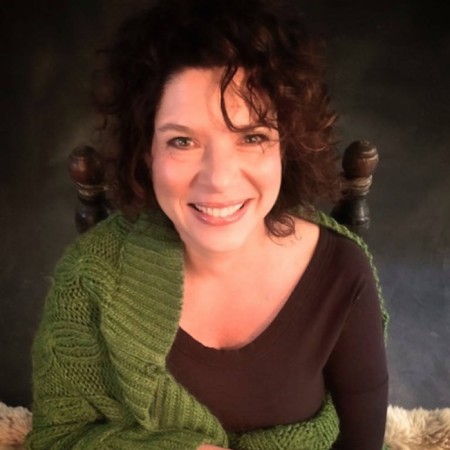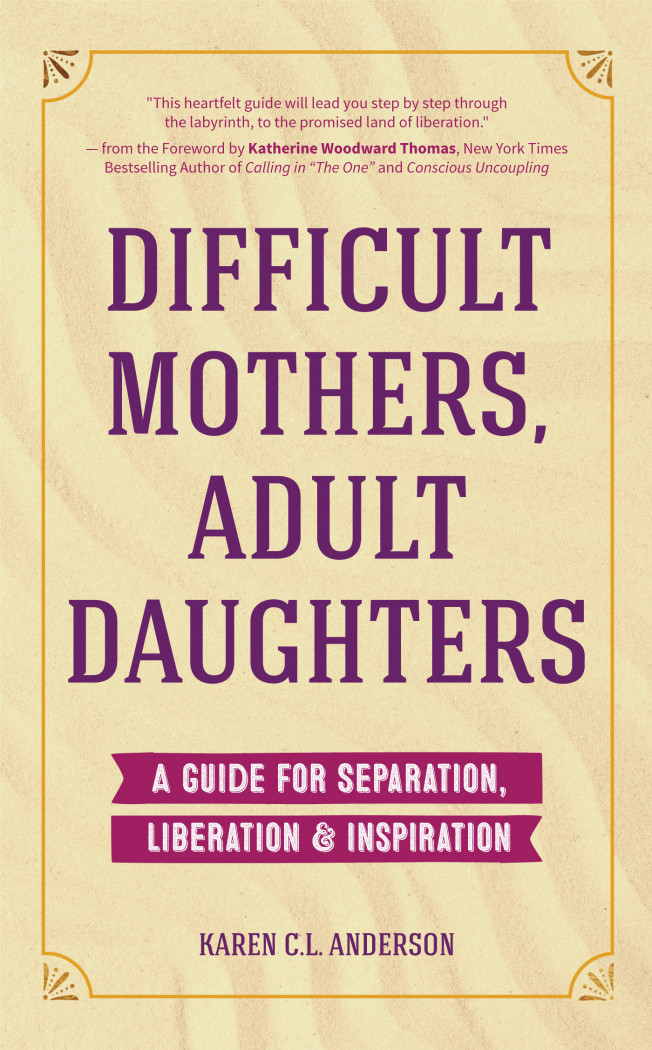I’ve been thinking a lot about Wayne Dyer’s assertion that when you change the way you look at things (or people), things (and people) change. Even difficult things (and difficult people).
I’ve also been thinking about the fact that there are things we can only seem to learn and understand when someone dies.
Things about ourselves. Things about the person. About life. I started learning this when my father died on New Year’s Eve, 2010.
As uncomfortable and sometimes downright painful as grief has been and can be, I am astonished by, and in awe of, the things I have learned and understood. Things that were simply unknowable and not able to be understood, prior to death.
The story I am about to tell you sort of mashes up these two concepts.
My husband’s ex-wife (Elizabeth), the mother of his three children, taught me about belonging when she died.
Before I share the lesson, I have to share that I didn’t used to like her much. In fact, there were times when my thoughts about her were quite unkind and sometimes downright nasty. And, from what I understand, she thought and felt the same way about me.
In some ways it was typical ex-wife/current wife, biological mom/stepmom stuff. I wanted to believe that I was Super Step Mom here to save the day…to save my step kids from their unstable, perhaps mentally ill mother. She probably thought I was an overstepping know-it-all who thought I was better than her.
But you know what? Over the years we did fun things together. I am not even going to say “for the sake of the kids” because while they were certainly the reason we ever hung out, I can see now that we were meant to be part of each other’s lives, at least for a while.
Some of my fondest memories of the past 20 years include her: sitting in the stands at the Little League field and gymnastics meets. Some holidays. The time we took 12-year-old Jessica and two of her friends to see Hanson (you should have heard the screaming!). The graduations. The birth of our grandson.
In those moments, she was gracious. She included me. In pictures with her kids. “You’re part of the family too…” Except I didn’t believe she was sincere.
The thing is, I haven’t always felt like I belonged.
My parents divorced when I was three and so growing up I had two (complicated) families:
One with my mother, stepfather, and adopted brother. We’d often spend time with my stepfather’s family, but I wasn’t biologically part of it. Then my mother and stepfather got divorced so the family fractured a little more.
And the other with my father, stepmother, half sister and half brother. And when I was with them, we’d often spend time with my stepmother’s family…and I wasn’t biologically part of them either. My father and stepmother eventually got divorced, as well.
All the divorces, all the remarriages. The steps. The halves. The once-removeds. The people who are there because they’re somehow part of the mix.
Then I married a man with kids and an ex-wife.
Getting back to Elizabeth.
She had lung cancer.
On her last somewhat lucid day, I went to see her in the hospital. I had been afraid to show up because I didn’t think I was welcome or belonged there. I didn’t want to “intrude.” I was uncomfortable, not knowing how I’d handle it.
I sat down next to her bed and reached for her hand. She roused herself and said, “None of this handshake shit…I want a hug.” And so I hugged her.
A little while later she complained about chapped lips. Her daughter Jessica offered her some Chapstick, which she promptly waved away. She wanted something softer. There was a tiny pink pot of Vaseline lip balm by the bed.
“Do you want me to put some of this on?” Jessica asked.
“No,” she said gruffly.
Her son Jeremey asked if he could do it. Again, no.
They both looked at me, as I was the only other person in the room, and Jeremey asked, “You want Karen to do it?”
She raised her finger in the air and replied, with her trademark sarcasm, “Ding ding ding!”
So I reached over and carefully put some balm on her lips.
She died a few days later.
Afterwards, in the midst of what seemed like disproportionate grief over her death, there was something else: shame.
I alluded to it previously. At one time I had not-nice thoughts about her and I told not-nice stories. Then I started telling myself the story that she’d had a painful childhood, that she was a victim, and that I pitied her. Along with pity, however, I was also pissed because I still believed that she was creating pain for others.
And I believed that story right up until the end. Almost.
The experience I had with her before she died showed me something else about myself.
My sense of loss was connected to the contrast: I didn’t like her when she was alive, but when she was dying, she touched me in such a way that I was able to let go of all the stories I had ever told about her – and I woke up to her wholeness and her goodness. The wholeness and goodness that was always there, but which I chose not to see.
I felt shame. And it’s okay.
Brené Brown says that feeling shame is what separates “normal” people from psychopaths (who apparently don’t feel shame).
When I shared my experience in a blog post, a friend commented: “I’m pretty sure I could not be the woman you were.”
Fact is, I couldn’t be that woman either until Elizabeth helped me be that woman.
And just like I can now see her innate goodness, I can also see my own.
I had to sit with my shame for quite a while in order to see this. I had to accept it and choose to experience it, with all its burning discomfort.
Once it burned itself out, I felt indescribable compassion, both for her and for myself.
Rather than using my shame to hurt me, I choose to let it transform me.
Part of being truly alive is not being afraid of the contrast. Shame and compassion are equally valuable parts of the deal.
What I know now is that…
…she understood how important it was (for both of us) that I be able to express my care for her before she died.
…all those years, it was I who chose to feel separate and apart, for whatever reason. It was I who had barriers up. I am not blaming myself, but I see how I held back.
…it’s up to me to be willing to be included. To step up and own the fact that I belong…and to act like it.
…these people with whom we spend time – who love the same people we love – who teach us stuff – even if we don’t like them, they’re family…and eventually we can feel genuine love for them.
They can change. And so can we.


